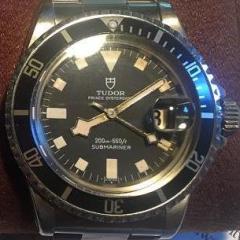Seiko NH 35/6 lubrication of brand new movement
-
Recently Browsing
- No registered users viewing this page.
-
Topics
-
Posts
-
By Neverenoughwatches · Posted
So leave off the seconds. Stand the movement on its edge, its the dial edge that rests on the pad ( either rubber or cork , something that wont slip ). Use a finger of your left hand to hold the movement upright, right hand presses the release and flicks out the stem. I do it this way so i can see what I'm under a microscope. But you could hold the movement between two fingers of your left hand, its the right that has to manipulate the stem out by pushing the release and flicking out the stem with right ring finger nail. Sounds more complicated than it actually is. I guess you could fix a push pin to something solid, then all you need to do is push the release against the pin, leaving your right hand completely free to pull the stem out. -
By HectorLooi · Posted
Try putting everything back together and closing the back cover. I think one of the two springs has to contact the metal casing to ground the casing. So when you press the button, it will touch the contact on circuit board and close the circuit. -
Yes, the seconds hand is the longest and goes almost to the edge of the dial. I can’t quite picture it how you do it on the rubber pad
-
By Neverenoughwatches · Posted
I think what peter means oh is once he has fitted the hands and checked for alignment if them and that they dont foul, how does he then hold the movement to remove the stem in order to case up. The dial cannot be laid on a cushion or in a movement holder as the hands will get damaged. This can be quite tricky for a beginner, what i do is to stand the movement on edge on a rubber pad so it doesn't slip. Hold the top edge with one finger then my dominant hand uses 3 fingers to press the stem release and flick out the stem. See below peter, leave off the second hand as this is the longest and gets caught the most, then fit it once the stem is out. Alternatively place the movement in one of the cup style holders, i imagine this is what they are designed for. They only touch the very edge of the dial.
-







Recommended Posts
Join the conversation
You can post now and register later. If you have an account, sign in now to post with your account.
Note: Your post will require moderator approval before it will be visible.